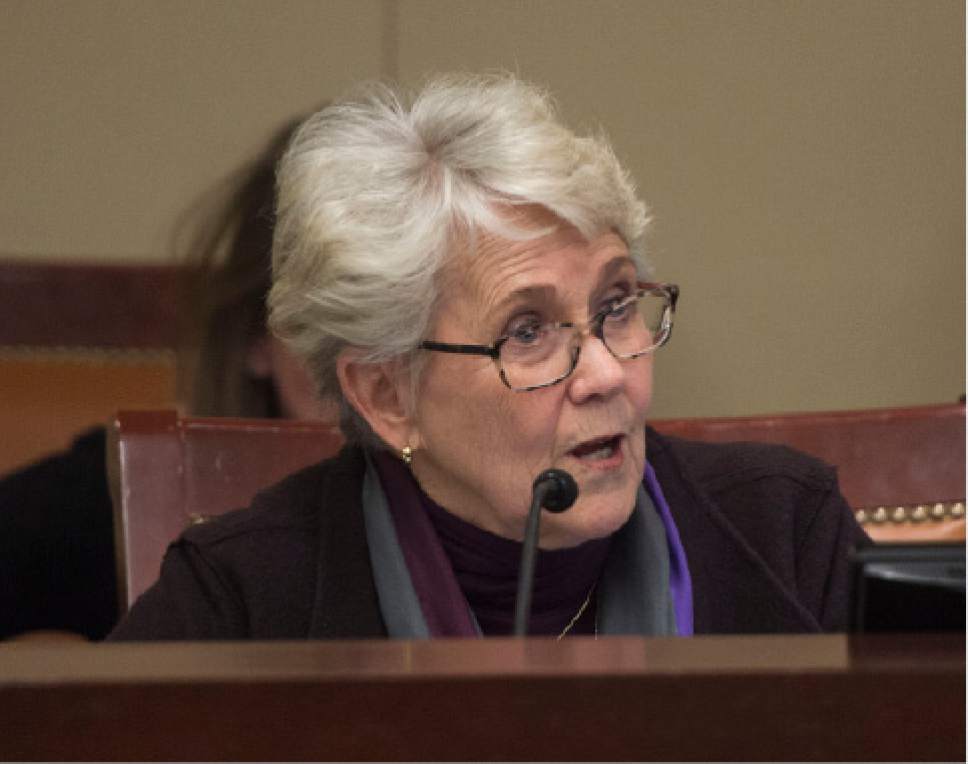This is an archived article that was published on sltrib.com in 2017, and information in the article may be outdated. It is provided only for personal research purposes and may not be reprinted.
A debate over the proper start time for Utah's high schools is headed to the House floor.
Members of the House Education Committee voted 8-2 on Thursday in favor of a resolution that encourages high schools to postpone their morning bells until 8:30 am or later.
The resolution's sponsor, Rep. Carol Spackman Moss, D-Holladay, said there is a growing body of research suggesting that teenagers are naturally impeded from waking at early hours.
That can lead to inattention in class, she said, and contribute to deleterious health effects like obesity, depression and drowsy driving.
"There have been studies that show that later start times improve achievement and improve attendance," Moss said.
Erika Ofek, a West Valley City pediatrician, said most of her teenage patients average five or six hours of sleep per night, short of the recommended nine hours.
"I can tell you definitively, my patients are greatly suffering from these early start times," she said. "This comes up on almost a daily basis in my clinic."
School schedule adjustments often draw opposition due to the cost of busing and the impact on after-school activities such as sports or employment.
A recent Salt Lake Tribune-Hinckley Institute of Politics poll found Utahns are split on the issues, with 41 percent in favor of postponing start times and 49 percent opposed.
Brett Wilson, principal of the Academy of Math Engineering and Science, said all of the state's early college high schools start at 8 a.m. or later, and are consistently among the highest performing schools in the state.
He also said his school has not seen a reduction in activities participation as a result of its later hours.
"Most of us, when we get to college, don't choose to take that 7:45 [a.m.] class," Wilson said. "Our schedule matches what they're going to do in college."
Rep. Dan McCay, R-Riverton, said that while the subject may be worthy of discussion, debate on a non-binding resolution takes time away from other legislative proposals.
"We have now spent 40 minutes on this debate on a resolution," he said. "If we let this thing out on the floor, your bills will die."
But other committee members suggested the resolution could prompt action by local school administrators.
"I think it's worthy of a floor debate," said Rep. Justin Fawson, R-North Ogden. "I know it's a nonbonding thing, but it would be nice to send a clear message and then let our education institutions decide form there."
Twitter: @bjaminwood



